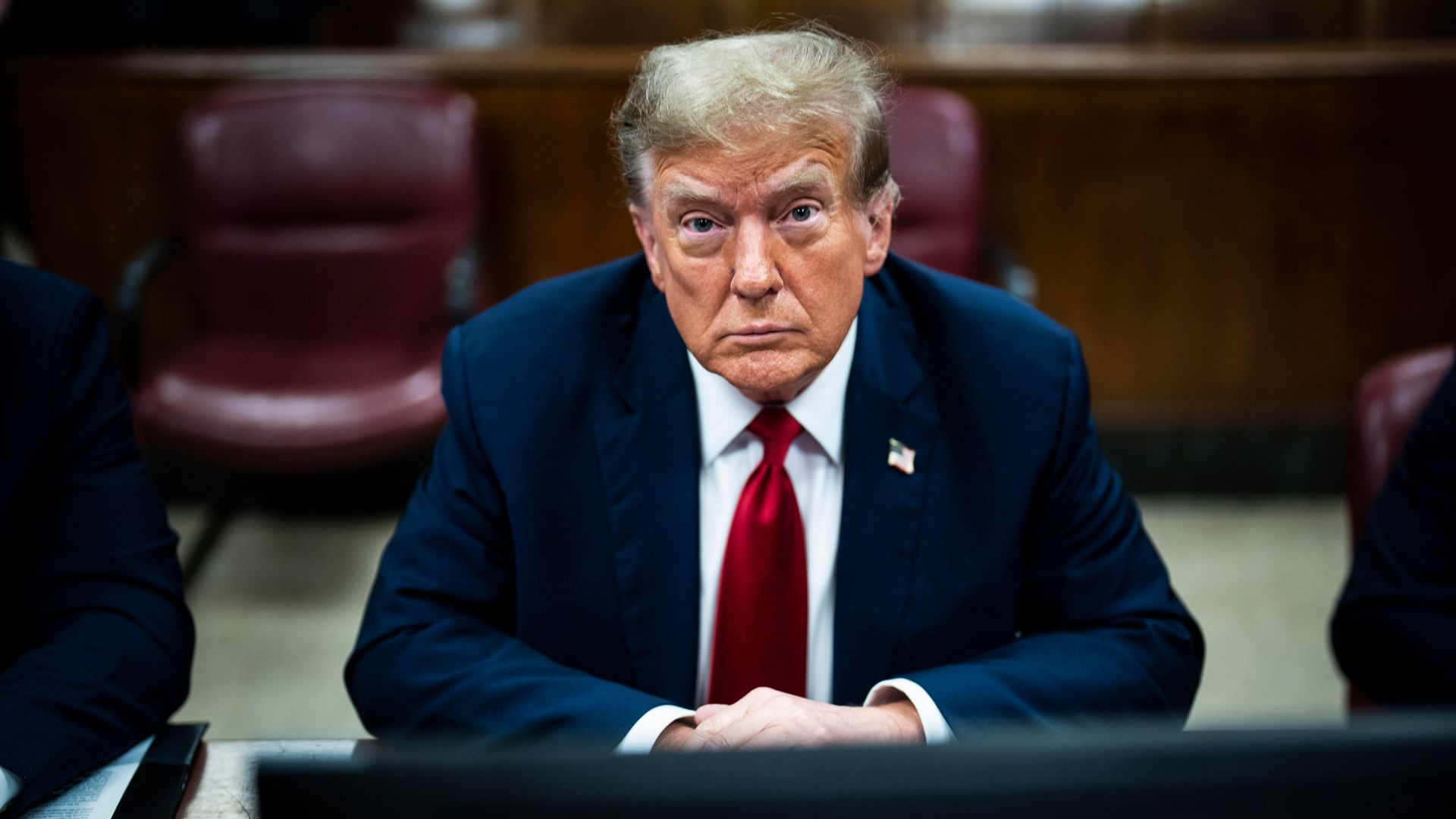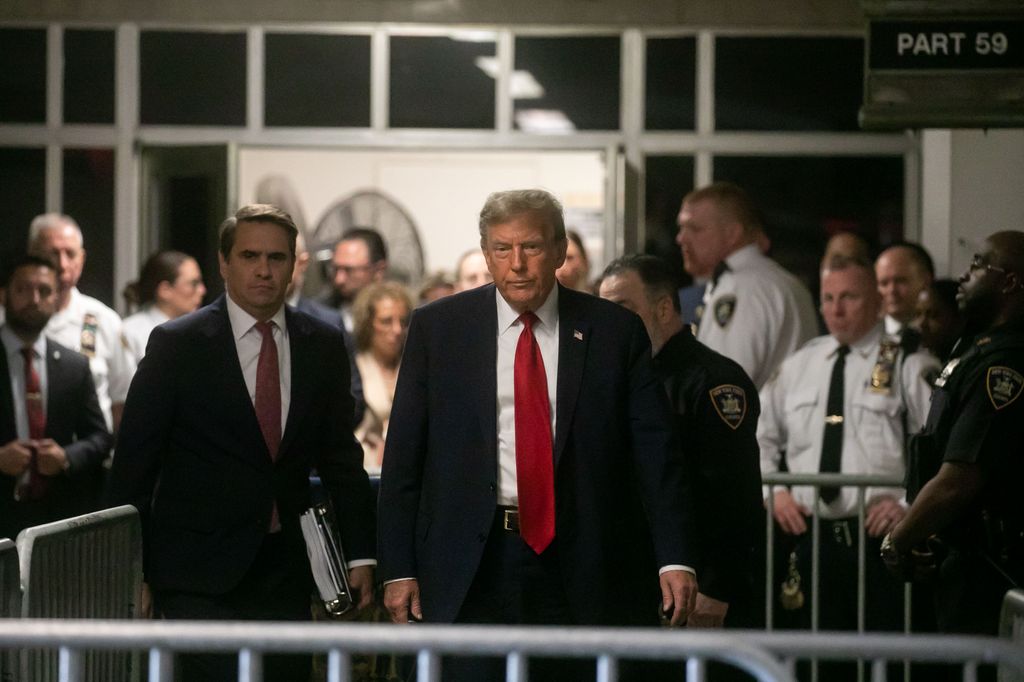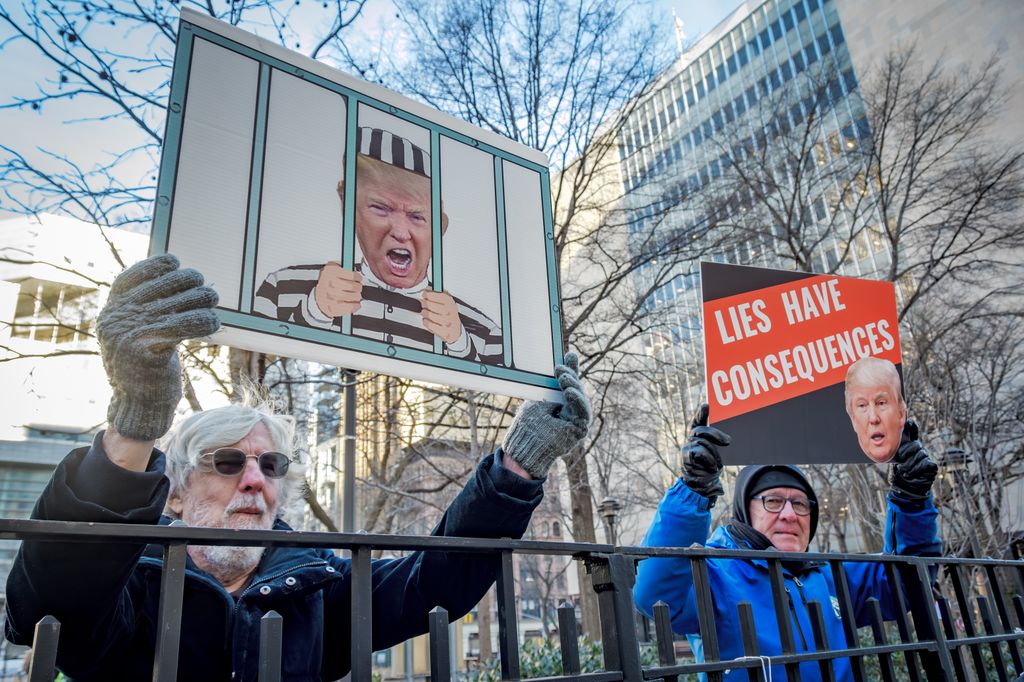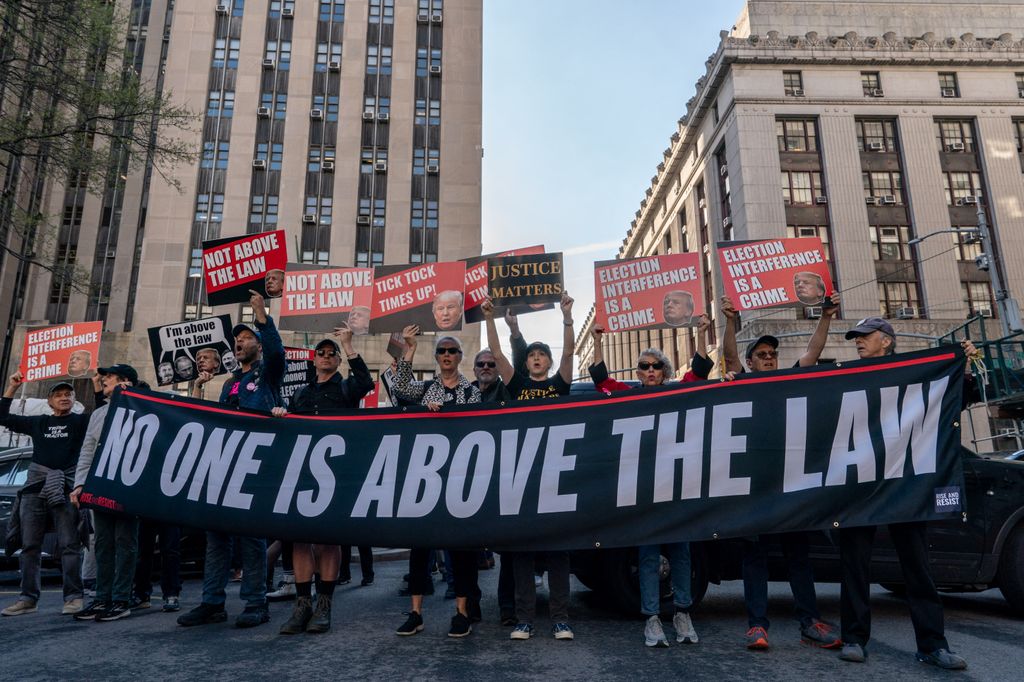The first of various trials looming over Donald Trump, his hush money trial, has officially begun today.
On Monday, the former president – who is facing four different indictments in the midst of his reelection campaign – was in Manhattan court as jury selection began on his trial over the hush money payments he allegedly paid a former adult film star by way of his former attorney. It's the first time a former US president has ever faced criminal prosecution.
Below, catch up on the trial, and get answers to your burning questions about it, from how long it'll last, to whether he can actually go to prison, and if he can still be president regardless.
Why is Trump on trial?
Last April, Trump was charged with 34 felony counts of falsifying business records in an attempt to silence his alleged mistress, Stormy Daniels, ahead of his 2016 run for president, which Manhattan district attorney Alvin Bragg claims directly impacted the election. While paying hush money is not necessarily illegal, as it was allegedly intended to hide salacious details from voters – particularly after the infamous Access Hollywood tape – the payments therefore violated campaign finance law.
Daniels and Trump allegedly had a one-time affair in 2006 in a Nevada hotel room, one year after he married current, third wife Melania Trump, née Knauss. Daniels was paid $130,000 by Trump's former fixer Michael Cohen to sign a nondisclosure agreement about the relationship with Trump, which Trump reimbursed, however he has maintained his innocence and that the payments were unrelated.
While in New York falsifying business records is usually a misdemeanor punishable by no more than one year in prison, it becomes a felony punishable by up to four years in prison when done in order to either exacerbate or conceal a previous crime, in this case the campaign finance violation.
Could Trump actually go to jail?
Technically, yes, but it depends. Though the maximum penalty for each of the 34 counts is four years, New York has a 20-year cap on sentencing for such felonies, and it is up to the judge, should Trump be sentenced to prison time, whether he would serve them concurrently or consecutively.
MORE: Jeffrey Epstein documents unsealed: why were they released and what happens next
Per CNN, because the nature of the crimes isn't violent and he doesn't have a criminal record, the judge could also decide to jail him for significantly less than what the maximum sentence is.
Or, he could avoid prison time completely, and be on probation instead, but with the chance of going to jail always a possibility should he violate conditions set by the judge.
Where to watch Trump's trial?
Trump has to be in court every day for the duration of the trial, however don't expect to be tuning in to court TV yourself day after day, as the trial won't be televised. He can always ask to be excused from attending, but the prosecution has a right to object.
MORE: Inside Donald Trump’s complex relationship with late sister Maryanne Barry
As for how long it'll take, jury selection, during which roughly 500 potential jurors will be questioned on their feelings relating to Trump, will take about two weeks, while the trial itself is expected to take about six to eight weeks.
Can Trump run for president from prison?
There are no legal obstacles preventing Trump, or anyone, from running for president as a convicted felon, or even from jail itself. Per the Constitution, anyone can serve as president "even if he's a convicted felon or even if he's a convicted felon in the joint."
MORE: Donald Trump found liable of sexually abusing and forcibly touching E. Jean Carroll
In fact, Trump wouldn't be the first person to try to run for president from behind bars. Most famously, in 1920, socialist Eugene V. Debs became the Socialist Party nominee, and garnered one million votes (3% of the popular vote), while serving a ten-year federal sentence after he encouraged people to resist the World War I draft.
Nonetheless, it remains tricky and uncharted territory, and for it to happen, it means Trump would have to be convicted, sentenced, then go through the appeals process, go to prison, and win the election in November, after which he could theoretically try to pardon himself.
Get the lowdown on the biggest, hottest celebrity news, features and profiles coming out of the U.S. Sign up to our HELLO! Hollywood newsletter and get them delivered straight to your inbox.












